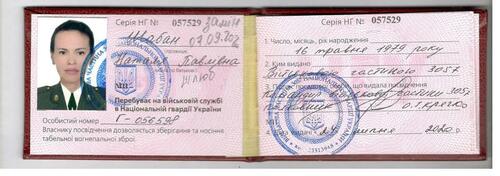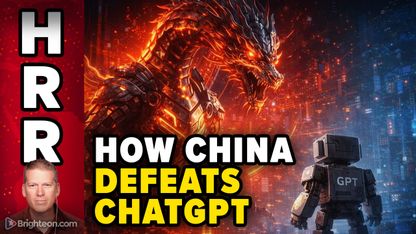
(Article by Tyler Durden republished from ZeroHedge.com)
The fissure between those empires was cemented by the Bosnian Crisis of 1908 which saw Austria-Hungary annex Bosnia and Herzegovina by using Bulgaria's declaration of independence from the Ottoman Empire as an advantageous political catalyst given its destabilization of the Balkan region. Austria-Hungary's actions would provoke Russia to rise to the defense of its Slavic brethren situated in Serbia and Montenegro in a response that would forever alter how Russia would align itself among the continental powers of Europe. While a widespread conflict was averted by the amending the Treaty of Berlin, the political climate the Bosnian Crisis cast would light the fuse for the inevitable outbreak of WWI which was detonated with the assassination of Archduke Franz Ferdinand by Bosnian-Serb nationalist Gavrilo Princip.
As the war in Ukraine places Russia at familiar odds with the powers of Europe yet again, the precarious position of ostensibly unsustainable peace across the continent echoes on longer than a century following the First World War. The tension illustrates the axiom that nothing is new under the sun as the volatility of Europe in 2022 mirrors that in 1908. Russia's position against the European hegemony vested in NATO is analogous to its stance in support of the Slavic realm longer than a century ago. Now, following the assassination of Darya Dugina, this century may have found its own Franz Ferdinand.
The Russian Federal Security Service ("FSB") has claimed that the assassination of Dugina was committed by a covert operative of Ukraine. The FSB has identified Natalia Vovk as the alleged assassin. "As a result of a complex of urgent operational-search measures, the Federal Security Service has solved the murder of Russian journalist Darya Dugina, born in 1992," the FSB announced, going on to emphasize the culpability of the Ukrainian government by stating that "the crime was prepared and committed by the Ukrainian special services[.]"
According to the FSB's investigation, Vovk entered Russia in July before situating herself in the same apartment building that Dugina resided in. Vovk would then follow Dugina to the festival in which the explosive device that led to her death was planted. Vovk, who was accompanied by her 12-year old daughter, fled to Estonia following the assassination, according to Russian intelligence. Following her identification, Russian law enforcement agencies declared their intent to seek her extradition.

Following Dugina's assassination, Ukraine was naturally implicated as being behind the murder given her father's significant, albeit enigmatic, reputation as one of Vladimir Putin's most influential ideologues. Kiev urgently washed its hands of any involvement as advisor Mykhailo Podolyak stated “Ukraine, of course, has nothing to do with yesterday’s explosion[.]” Although Ukrainian officials denied any involvement in the attack, President Volodymyr Zelensky warned of his anticipation that Dugina's murder would inextricably result in the intensification Russia's military campaign.
*PUTIN CALLS DUGINA MURDER DASTARDLY, BRUTAL CRIME: TASS
— zerohedge (@zerohedge) August 22, 2022
Given the reports of Vovk's escape to Estonia, the location of the alleged assassin places Russia in a conflict against a NATO member state even more directly than the proxy war in Ukraine has. In 2016, the European Court of Justice set precedent which would justify any extradition request for Vovk by Russia. The case law that set that standard occurred when the court found that any member state of the European Union is obligated to accommodate an extradition request of any third-party non-member state even if the subject of the request is not a citizen of the EU nation itself. This decision followed a case in which Russia requested to have Estonian national Aleksei Petruhhin extradited from Latvia for drug trafficking offenses.
The legal framework set by the European Court of Justice will place Estonia in a crucible if Vovk has indeed found safe haven in the Baltic state. In addition to joining the EU in 2004, Estonia joined NATO that same year. The potential conflict arising between Estonia and the Russian Federation has the potential to trigger Article 5 of the NATO Charter which puts forth a collective defense clause meaning that any military engagement with a NATO member state constitutes action taken against the entire trans-Atlantic body whether it occurs as far east as Tallinn or as far west as Hawai'i.
Article 5 has been constantly dangled before Russia as a Sword of Damicles of sorts designed to dissuade any escalation of the Ukrainian conflict. The veiled threat was most recently invoked in response to Russian attack on Zaporizhzhia Nuclear Power Plant and increased military incursions by Ukrainian military forces into Crimea. “Any deliberate damage causing potential radiation leak to a Ukrainian nuclear reactor would be a breach of NATO’s Article 5,” said UK MP Tobias Ellwood. His sentiments were echoed by US Congressman Adam Kinzinger (R - IL) who followed Ellwood's declaration by stating “This really isn’t even up for debate; any leak will kill people in NATO countries, that’s an automatic article 5[.]" just hours before Dugina's assassination.
While Article 5 of the NATO Charter has been used to threaten Russia from intensifying any aggression, the officials who have constantly cited the collective defense policy have done so under the pretense of preventing any further aggression. The assassination of Darya Dugina is a drastically different circumstance as Russia will surely perceive any potential action it takes to have Vovk extradited from Estonia as entirely justified and as a response to the murder, not an offensive attack against a NATO member state. As the manhunt for Vovk ensures, Europe again finds itself in the political crucible that enveloped the continent following Gravrilo Princip's assassination of Archduke Franz Ferdinand. However, in this historical iteration, it is the European central powers who find themselves in a position of being the aggressor that could provoke a catastrophic conflict with Russia.
Read more at: ZeroHedge.com
Please contact us for more information.


















